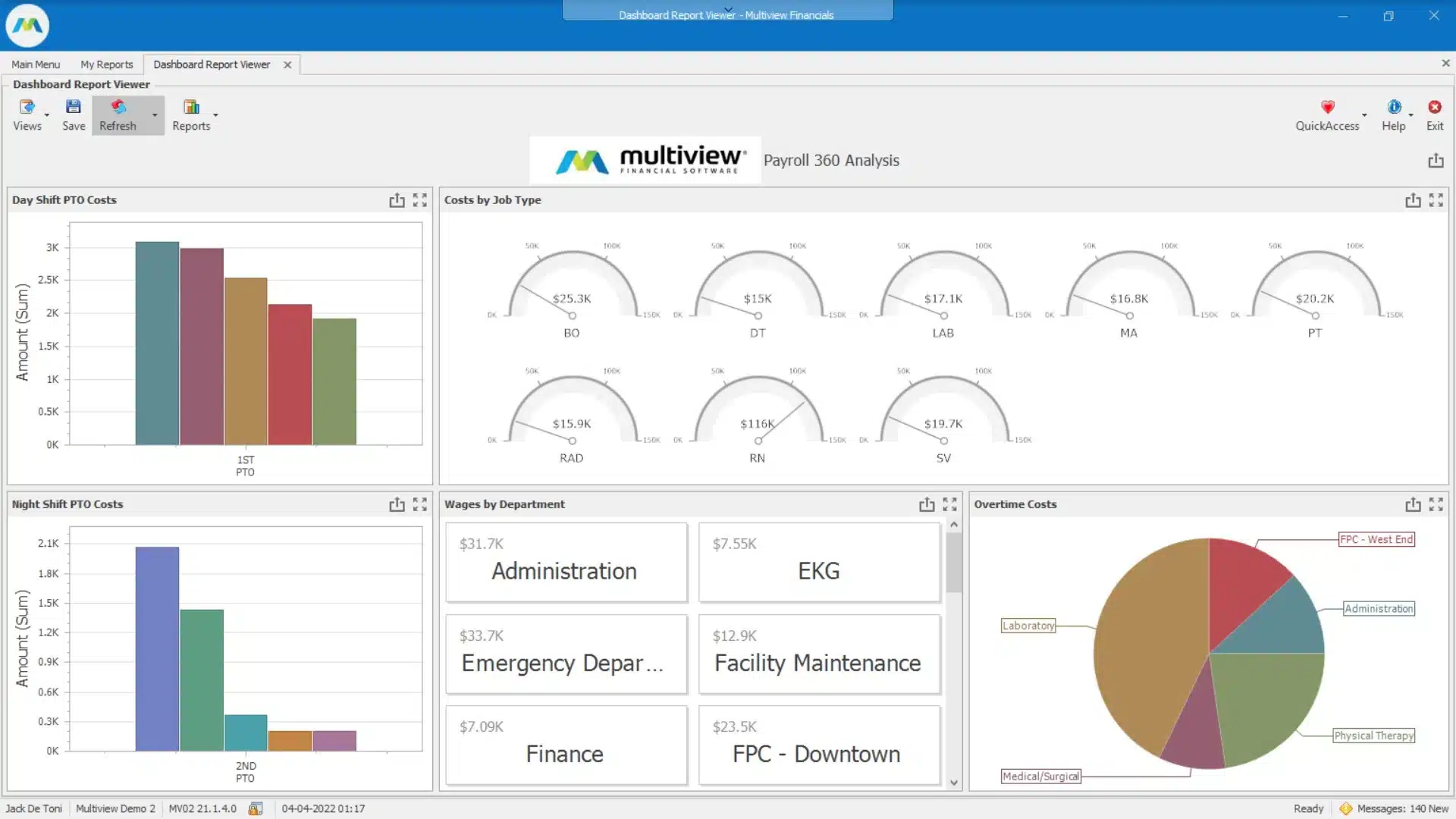Running a business in the Philippines is no easy feat. From finances to HR tasks, every department is important for a flawless company workflow, which means a business needs a whole system that brings every department together. An ERP software is one of the answers to assimilate all the workload effectively.
But here’s the catch: with so many ERP vendors on the market, how do you know which one is the perfect fit for your business?
Wag kang magalala! HashMicro ERP Software is the perfect solution for your business, as it has every module covering your department’s needs, as well as easy to use and has unlimited users with no additional costs.
But if you’re exploring other ERP system examples, we’ve compiled a list of 21 top options in the Philippines, detailing their features, pros, and cons. Let’s get started!
Key Takeaways
|
Table of Contents

Top ERP Software at a Glance
- HashMicro: Best for all-in-one ERP with modular features and no extra user fees.
- Odoo: Best for businesses needing ultimate customization.
- Sage: Best for powerful accounting solutions.
- NetSuite: Best for seamless operations across industries.
- SAP S/4 HANA: Best for fast and accurate financial reporting.
- Acumatica: Best for growing businesses with cloud access.
- Microsoft Dynamics 365: Best for Microsoft ecosystem integration.
- ERPNext: Best for budget-friendly open-source ERP.
- Blue Link ERP: Best for wholesale and distribution.
- Infor ERP: Best for supply chain optimization.
- SAP ERP: Best for advanced analytics and reporting.
- ECOUNT: Best for easy finance and inventory management.
- SAP Business One: Best for small to mid-sized companies.
- DynamIQ: Best for SMEs needing local market solutions.
- Epicor: Best for manufacturers.
- SYSPRO: Best for manufacturing and distribution.
- Hooman ERP: Best for SMEs wanting affordable cloud ERP.
- Focus 9: Best for boosting operational efficiency.
- Zoho:Best for small to mid-sized businesses needing an affordable, cloud-based ERP.
- QuickBooks:Ideal for mid-sized businesses requiring advanced accounting.
- Multiview:Designed for medium to large enterprises seeking a comprehensive financial management system
What is Enterprise Resource Planning (ERP) Software?
ERP software is an all-in-one platform that links different teams within an organization, providing each user with the necessary tools to perform their tasks effectively. ERPs support a wide variety of applications across almost any industry, enhancing collaboration between functions, eliminating data silos, and streamlining workflows along the way.
Below are some of the ERP software key features, organized by specific business functions:
- Marketing and Sales: Enhance client interactions, track customer acquisition costs, forecasting, streamline workflows, and analyze projects.
- Orders and Fulfillment: Process invoices, generate reports, facilitate payments, monitor orders, validate transactions, and support dropshipping.
- Accounting and Finance: Manage taxes, maintain the general ledger, produce financial reports, and record transactions.
- Supply Chain: Track production, oversee pending orders, assess demand, and utilize mobile-enabled monitoring.
- Inventory and Warehousing: Optimize stock control, automate replenishment, coordinate wave management, and integrate shipping solutions.
Hashy AI Fact

Need to know!
ERP should do more than record data—it should evolve with your business. Hashy from HashMicro leverages AI to analyze trends, automate tasks, and enhance efficiency.
Get a Free Demo Now!
The Functions of ERP System
An ERP system is a powerful tool that helps businesses improve efficiency across all departments. By integrating data, analyzing processes, and supporting decision-making, ERP systems provide the foundation for effective business management.
Below are the key functions, as well as the benefits of ERP system:
- Operational Efficiency: ERP automates workflows, eliminates redundancies, and integrates departments, so the process can be smoother with minimal manual effort.
- Enhanced Decision-Making: Real-time data and analytics empower businesses to make informed decisions to improve planning and strategy.
- Cost Savings: Optimized processes and better resource utilization help reduce operational expenses while increasing productivity.
- Problem Detection & Resolution: ERP systems identify inefficiencies and potential issues early so that the departments can conduct corrective actions quickly.
- Scalability & Flexibility: ERP adapts to business growth, so it has customizable features that can be adjusted with changing operational needs.
With these functions, ERP systems serve as a central tool to enhance efficiency, support strategic decision-making, and drive long-term business growth.
21 Best ERP Software for Business in Philippines 2025
Here’s the list of the 21 best ERP software in the Philippines for 2025 based on their functionality and reliability:
1. HashMicro
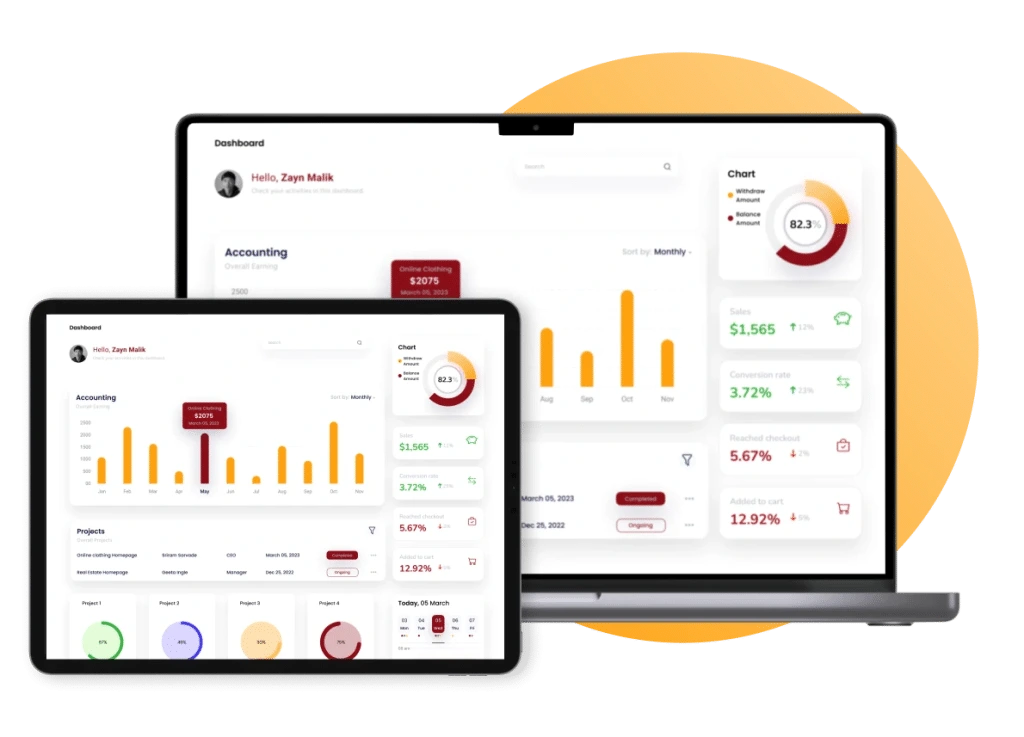
HashMicro is best for: Middle to enterprise-level businesses in varying industries that are looking for the best ERP software in the Philippines, with strong core modules and can be customized as needed, as well as full integration across various systems.
HashMicro smart suite simplifies business management by integrating key processes like finance, inventory, and HR into one smart platform. With AI-powered tools and a modular design, it adapts to 25+ industries.
HashMicro offers various ERP modules for every company’s needs, including:
- Customer Relationship Management: The CRM module allows for prospects management, sales tracking, follow-ups scheduling, invoice creation, reports generation, and effortless customer data analysis.
- Accounting: The accounting software module offers users to automatically record and generate bookkeeping, budgeting, invoicing, financial reporting, and cash flow forecasting, which complies with BIR (Bureau of Internal Revenue).
- Inventory: This module automates stock transfers, forecasts inventory, manages suppliers, and tracks deliveries, integrating with accounting and barcode systems for efficiency.
- Human Resource Management: HashMicro’s HR software module Simplifies salary management, recruitment, attendance tracking, leave, and tax management, enhancing HR performance.
- Procurement: This module can streamline purchasing processes, vendor management, invoicing, and communication between vendors and purchasing staff.
Other modules:
Apart from the main modules above, HashMicro, as the best ERP software, also provides a choice of other special and professionally designed modules.
These modules aim to meet specific business needs in various industries in the Philippines, such as manufacturing, construction, mining, and other industries.
Not only HashMicro provide various modules, but also some of the advantages of the best type of cloud ERP software product from HashMicro compared to other software:
| Pros | Cons |
|
|
Curious about HashMicro’s pricing? No worries! It offers competitive rates, matching the quality of service provided. Click the banner below for more details.

2. Odoo
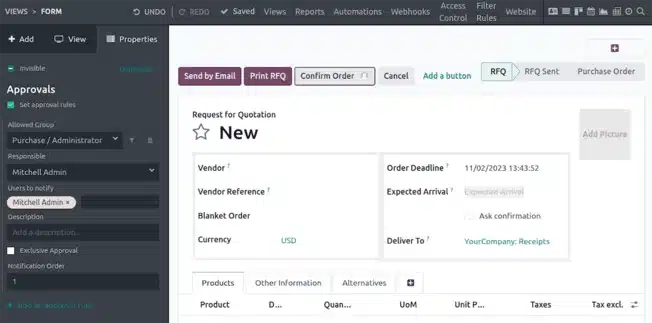
Odoo is one of the best ERP software in the Philippines, and it helps companies manage all aspects in an integrated manner. By using Odoo, companies can integrate existing programs so that all departments can access them according to their needs.
As it is an open-source ERP tools, Odoo stands out for its customization capabilities.
Odoo ERP provides pre-built apps covering various functions, including customer relationship management (CRM), point-of-sale (PoS), time off requests, expense reporting, publishing, and live chats.
Odoo key features:
- Customer relationship management
- E-commerce integration
- Sales management
- Project management
- Event management
- Manufacturing management
| Pros | Cons |
|
|
Odoo ERP Solutions: Odoo ERP fits businesses of all sizes, especially small and medium enterprises (SMEs), startups, and expanding companies.
Odoo pricing: Free (for 1 app) and starts from $7.25/user/month.
3. Sage X3
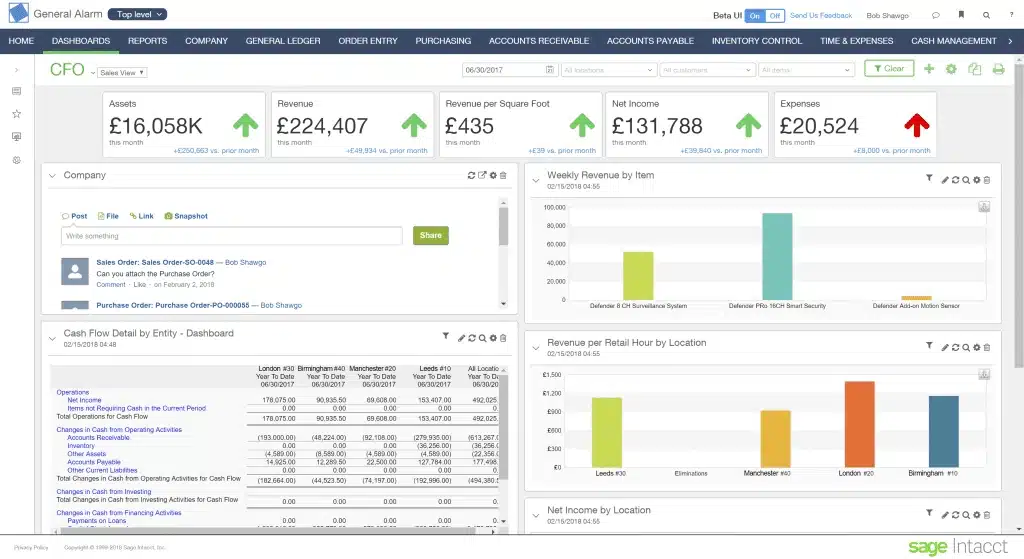
Sage x3 is a cloud ERP software in the Philippines tailored for small and mid-sized businesses. It focuses on providing a financial management system that offers flexibility and scalability without needing an extensive IT infrastructure.
Sage x3 ‘s robust automation capabilities streamline critical finance and accounting processes like invoicing and expense management, reducing manual errors and ensuring compliance with accounting standards. It can also integrate with other modules like CRM, order management, and online payment.
Sage X3 key features:
- General ledger and configurable accounting features
- Inventory management
- Order management
- Security features
- Payroll management
| Pros | Cons |
|
|
Sage X3 ERP Software: Sage X3 is best for middle-scale businesses in food & beverage, process and discrete manufacturing, distribution, chemicals, and services that need real-time insights and automation.
Sage X3 pricing: Starts at $25,000 before implementation.
4. Oracle NetSuite
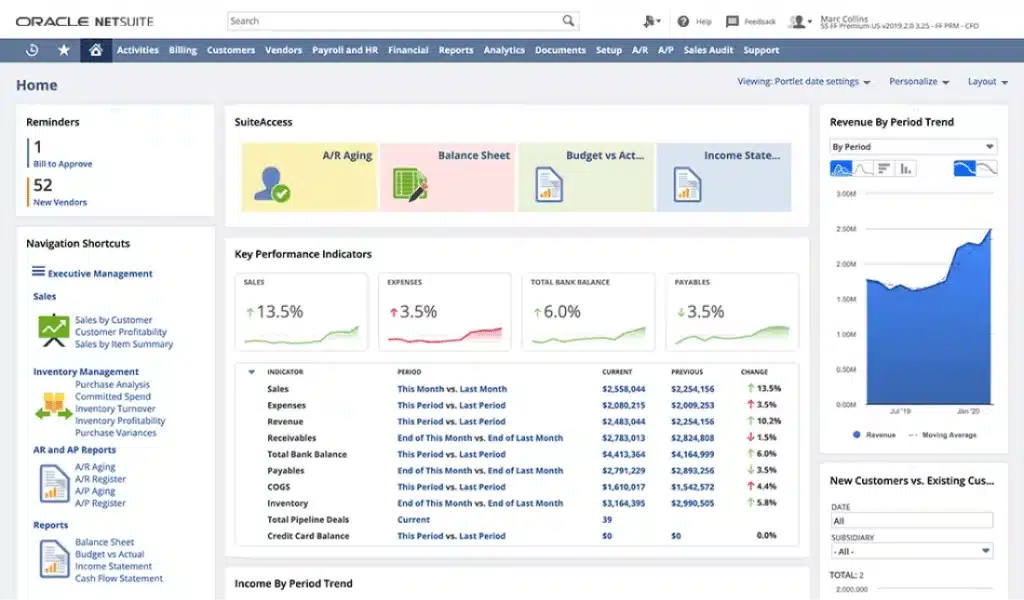
NetSuite, an Oracle cloud-based ERP solution, aids businesses in automating and managing diverse aspects through its feature-rich modules. It offers real-time insights into financials, CRM, inventory, and sales.
Spanning various industries like manufacturing, retail, software, and e-commerce, Netsuite caters to a wide array of domains. Moreover, its advanced reporting and analytics make it adaptable for businesses of any size in the Philippines and easily tailored to fit specific requirements.
Oracle NetSuite key features:
- Accounting software
- Inventory management
- Order management
- Supply chain management
- Procurement
| Pros | Cons |
|
|
Oracle NetSuite ERP: NetSuite is best for growing businesses, mid-sized companies, and corporate subsidiaries that need integrated finance, CRM, inventory, and project management.
Oracle NetSuite pricing: Contact the vendor directly for pricing details.
5. SAP S/4 HANA
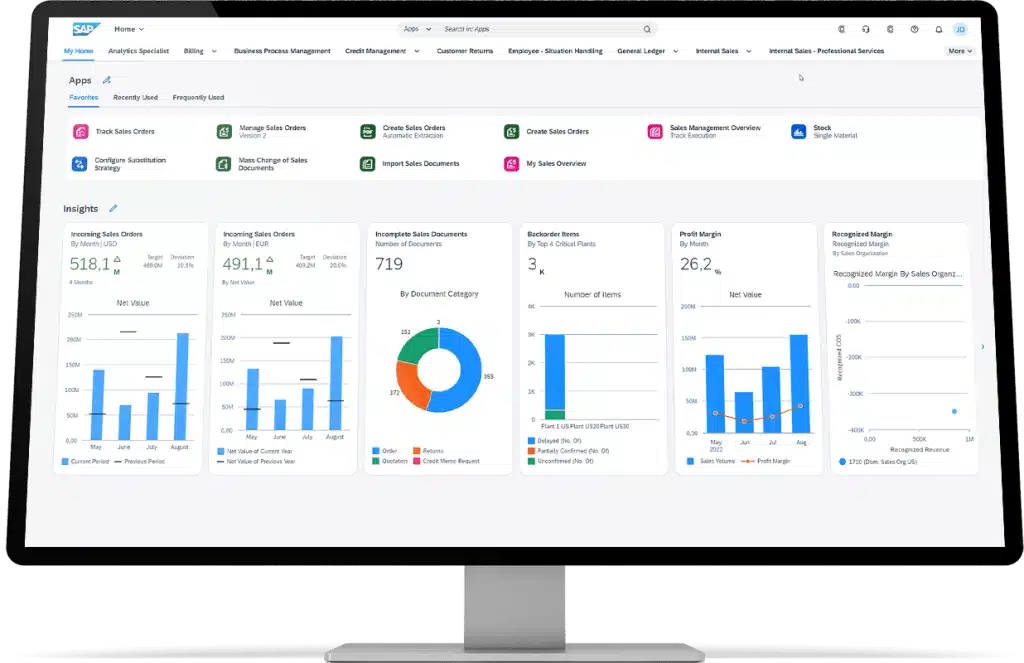
SAP S/4 HANA marks an advancement from SAP’s earlier ERP software, delivering a platform designed to capitalize on cutting-edge technology. Utilizing in-memory databases, it streamlines rapid data processing.
Like many ERP providers, S/4 HANA presents a range of modules for managing diverse business functions, including financial management, procurement, manufacturing, and logistics. Nonetheless, its upfront implementation expenses and additional fees could present financial hurdles for certain businesses.
SAP S/4 HANA key features:
- Financials
- Human resource management
- Manufacturing management
- Inventory management
- Sales management
| Pros | Cons |
|
|
SAP S/4 HANA: SAP S/4HANA ERP is best suited for large enterprises across industries such as information technology, computer software, and manufacturing.
SAP S/4 HANA pricing: Contact the vendor for a customized quote.
6. Acumatica ERP Software
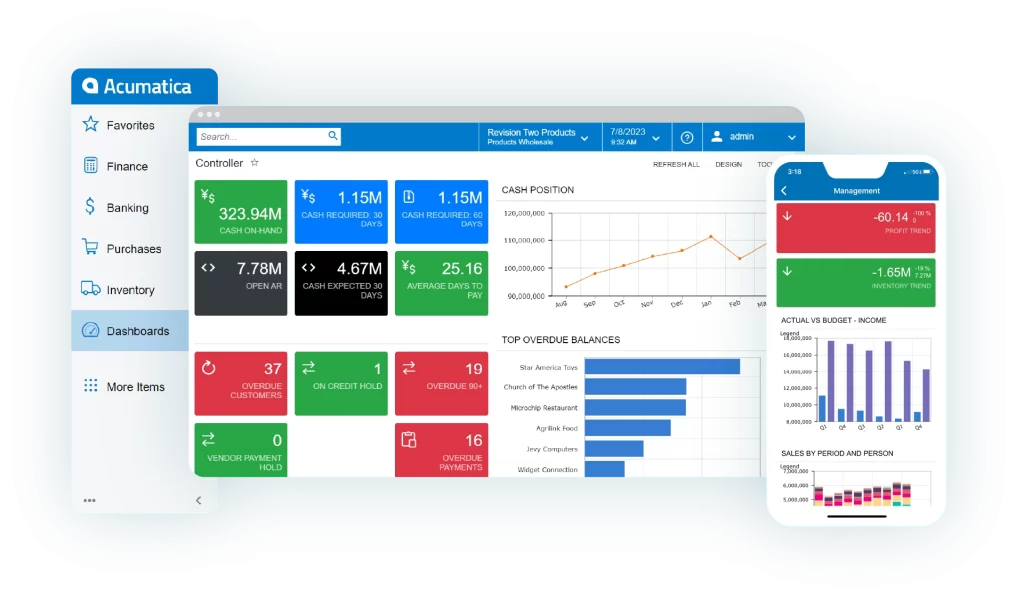
Acumatica presents a cloud-based ERP solution tailored for small to large businesses in the Philippines, particularly those experiencing rapid growth. It offers adaptable cloud hosting choices, encompassing public and private cloud options, ensuring data security and accessibility.
Available in five distinct editions: General Business, Distribution, Manufacturing, Retail, and Construction, Acumatica ERP caters to specific industry demands. Moreover, its modular architecture allows users to select and license only the necessary modules, allowing them to incorporate more as their business expands.
Acumatica key features:
- Financial management and accounting
- Customer relationship management
- Manufacturing and distribution management
- Project accounting and field service management
| Pros | Cons |
|
|
Also read: Top 12 Acumatica ERP Alternatives & Competitors in 2025
Acumatica ERP System: Acumatica ERP suits SMBs seeking a flexible, cloud-based solution that scales with growth, ideal for manufacturing, distribution, retail, construction, and services.
Acumatica pricing: Contact Acumatica to get a customized pricing quote.
7. Microsoft Dynamics 365
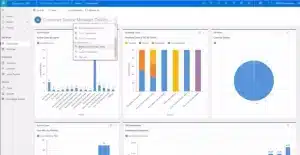 Microsoft Dynamics 365 is one of the most comprehensive ERP systems available, offering advanced solutions for businesses of all sizes. With its cloud-based platform, companies can integrate operations, streamline workflows, and improve decision-making across all departments.
Microsoft Dynamics 365 is one of the most comprehensive ERP systems available, offering advanced solutions for businesses of all sizes. With its cloud-based platform, companies can integrate operations, streamline workflows, and improve decision-making across all departments.
Microsoft Dynamics 365 stands out for its flexibility, allowing businesses to scale and customize features according to their needs. Its seamless integration with Microsoft Office tools further enhances productivity and collaboration.
Microsoft Dynamics 365 key features:
- Financial management
- Customer relationship management (CRM)
- Supply chain management
- Project management
- Human resources management
| Pros | Cons |
|
|
Microsoft Dynamics 365 ERP System: Best for businesses of all sizes needing a cloud-based productivity suite with tools like Word, Excel, PowerPoint, and Teams for seamless collaboration.
Microsoft Dynamics 365 pricing: Starts at ₱6,099.00/year or ₱609 per month
8. ERPNext
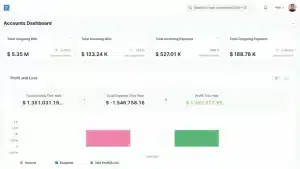
ERPNext is an open-source ERP platform designed for small to medium-sized businesses, offering an affordable and customizable solution. It enables companies to manage accounting, HR, inventory, and other operations in one integrated system.
As an open-source software, ERPNext is known for its flexibility and ability to adapt to various industries. Businesses can enjoy the freedom of customization without compromising performance.
ERPNext key features:
- Accounting and finance management
- Inventory tracking
- Manufacturing operations
- HR and payroll management
- Customer Relationship Management
| Pros | Cons |
|
|
ERPNext Solutions: ERPNext is ideal for small to mid-sized companies across industries looking for a free, open-source ERP to manage accounting, inventory, sales, and manufacturing.
ERPNext pricing: $5 to $200 US dollars per month.
9. Blue Link ERP Software
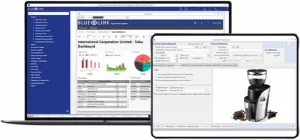 Blue Link is a comprehensive ERP solution designed to streamline and automate business operations for wholesalers and distributors. Furthermore, it focuses on inventory management, accounting, and order processing,
Blue Link is a comprehensive ERP solution designed to streamline and automate business operations for wholesalers and distributors. Furthermore, it focuses on inventory management, accounting, and order processing,
Blue Link provides tools to help businesses improve efficiency and reduce costs. Its modular design allows customization to meet each business’s needs, ensuring a tailored solution that maximizes productivity. Blue Link also offers features such as CRM, e-commerce integration, and reporting and analytics, making it a versatile and robust choice for businesses looking to optimize their operations.
Blue Link key features:
- Accounting management
- Inventory management
- Contact management
- Warehouse management
| Pros | Cons |
|
|
Blue Link ERP: Blue Link ERP is suitable for small to medium wholesale and distribution businesses that need integrated inventory management and accounting in one system.
Blue Link pricing: Starts at $500 per month.
10. Infor LN ERP
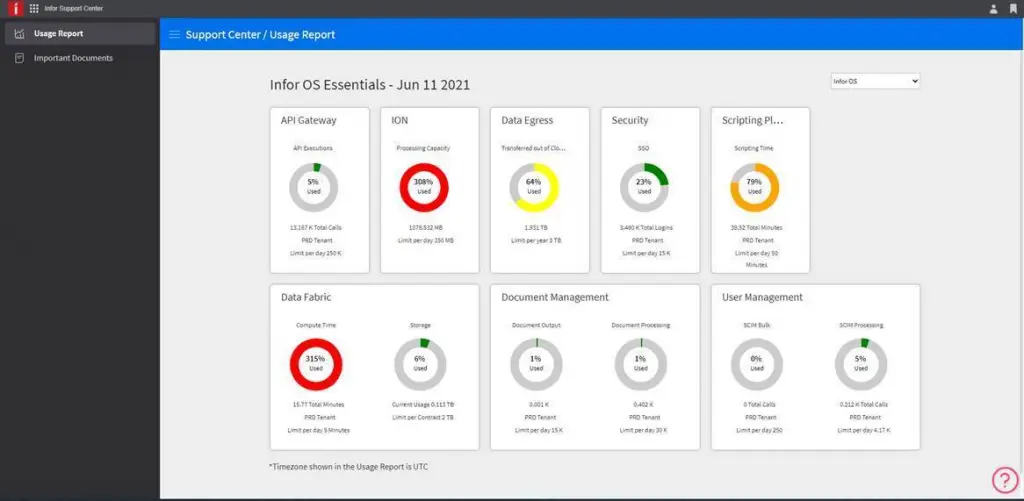
Infor LN ERP is industry-specific software for accounting and financial management, supply chain, and business process management across various functional areas. It operates company-wide on the cloud and supports multi-tenancy.
Infor offers intelligent business modules covering financial management, supply chain management, project management, and customer relationship management.
Infor LN key features:
- Task scheduling optimization
- Extensive quality management and traceability capabilities
- Efficient adherence to regulatory and compliance mandates
- Mobile enablement, business collaboration, and workflow management
- Inventory management
- Equipment rental management
| Pros | Cons |
|
|
Infor ERP Software: Infor is best for mid to large enterprises in manufacturing, distribution, healthcare, and public sectors.
Infor LN pricing: Contact the vendor for a customized pricing quote.
Do you want to see how an ERP system software works in reality, and not just by watching other people run the system? Click on the free demo banner below!

11. SAP ERP
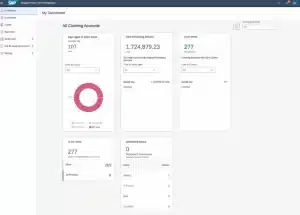
SAP ERP is a globally recognized ERP software designed for large enterprises, providing advanced tools for end-to-end business management. Its modular approach allows businesses to adopt specific functionalities as needed, making it highly versatile.
SAP ERP excels in providing in-depth analytics, enabling companies to gain insights into their operations and make data-driven decisions. It is widely used in industries such as manufacturing, finance, and logistics.
SAP key features:
- Financial accounting and management
- Supply chain optimization
- Production planning
- Asset management
- Business analytics
- Financial analysis.
- Document management.
- Inventory management.
| Pros | Cons |
|
|
SAP ERP System: SAP ERP is suitable for large enterprises handling complex business processes across multiple industries, providing advanced ERP tools for finance, supply chain, and operations.
SAP pricing: Contact the vendor for a quote.
12. ECOUNT ERP Software
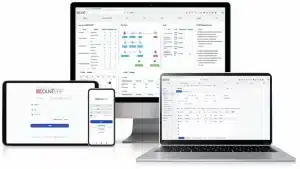 ECOUNT ERP is a cloud-based ERP system that aids users in managing their sales, production, purchasing, finance, and human resources in a single platform, especially for businesses in the Philippines. It is also praised as an affordable and flexible business management system for small and medium-sized businesses.
ECOUNT ERP is a cloud-based ERP system that aids users in managing their sales, production, purchasing, finance, and human resources in a single platform, especially for businesses in the Philippines. It is also praised as an affordable and flexible business management system for small and medium-sized businesses.
ECOUNT ERP software offers extensive features, including Accounting, Manufacturing, Purchasing, Inventory, Sales, and Business modules. The platform is also accessible anytime, anywhere, across any device.
ECOUNT key features:
- Inventory management
- Production management
- Accounting management
- Sales management
- Purchasing management
- Payroll management
| Pros | Cons |
|
|
ECOUNT ERP: ECOUNT is best for small to mid-sized businesses seeking a fully integrated, web-based solution to manage accounting, inventory, sales, purchasing, and production processes.
ECOUNT pricing: $55/month
13. SAP Business One
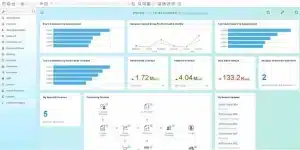 SAP Business One is tailored for small to medium-sized enterprises, offering a simplified yet powerful ERP solution. This software integrates critical business processes, including finance, inventory, and sales, into one easy-to-use platform.
SAP Business One is tailored for small to medium-sized enterprises, offering a simplified yet powerful ERP solution. This software integrates critical business processes, including finance, inventory, and sales, into one easy-to-use platform.
Its user-friendly interface and real-time insights make SAP Business One a top choice for businesses seeking efficiency and growth. The solution is scalable, making it suitable for businesses planning long-term expansion.
SAP Business One key features:
- Financial and accounting management
- Sales and customer management
- Inventory and distribution tracking
- Reporting and analytics
- Procurement managemen
| Pros | Cons |
|
|
SAP Business One: SAP Business One ERP suits small to medium-sized enterprises across various industries that need management tools for financials, operations, and human resources.
SAP Business One pricing: Contact the vendor for a quote.
14. DynamIQ
DynamIQ is a local ERP software from the Philippines that collaborates with SAP Business One to implement its system. It provides business solutions for small and medium enterprises and has complete and adequate features for small business needs.
DynamIQ key features:
- Financial management
- Sales and customer management
- Purchasing management
- Inventory management
- Analytics and reporting
| Pros | Cons |
|
|
DynamIQ ERP Solution: DynamIQ offers SAP Business One ERP in the Philippines, delivering extensive features and customizable solutions tailored to different business departments.
DynamIQ pricing: Contact the vendor for a quote.
15. Epicor ERP Software
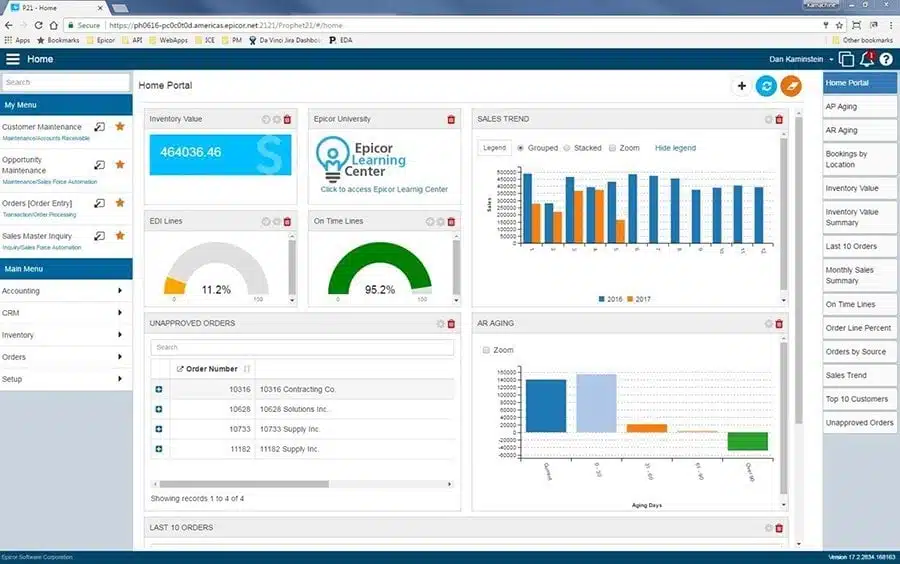
The Epicor Enterprise Resource Planning (ERP) software is industry-specific, modular software designed to oversee business processes across the entire company. It effectively handles accounting and finance, human resources, customer management, supply chain, inventory, distribution, and manufacturing production management.
Epicor software is accessible both on-premises and as a cloud-based SaaS ERP solution, and it provides Business Management Platforms tailored to specific industries.
Epicor key features:
- Manufacturing execution system (MES)
- Supply chain management
- Financial management
- Human capital management (HCM)
- Enterprise content management (DocStar ECM)
- eCommerce & point of sale
| Pros | Cons |
|
|
Epicor ERP Philippines: Epicor is ideal for small to medium-sized enterprises in industries such as manufacturing, automotive, retail, and distribution that require industry-specific solutions.
Epicor pricing: Contact the vendor for a quote.
16. SYSPRO ERP Software
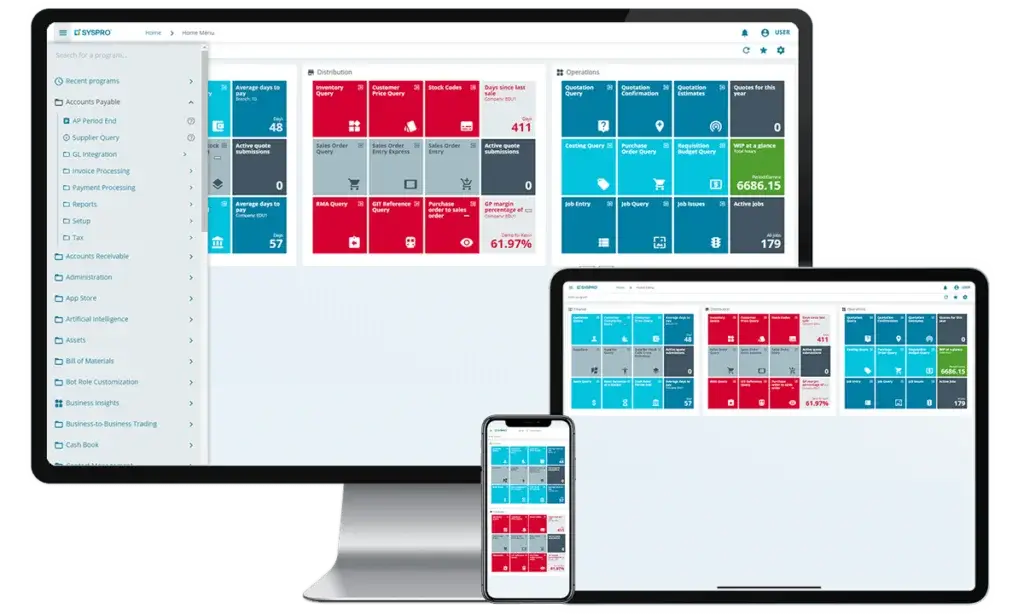
SYSPRO is a reliable pick for Enterprise Resource Planning (ERP) tools, especially those geared towards manufacturing ventures. With its strong suite of inventory management tools, SYSPRO shines among small to medium-sized businesses (SMBs).
Although it might come with a slightly higher price tag than some competitors, its user-friendly feature menu makes it a worthy investment.
SYSPRO key features:
- Order management
- Planning and scheduling
- Capacity planning
- Supply chain
- Production control
- Inventory management
| Pros | Cons |
|
|
SYSPRO ERP System: SYSPRO caters to small, mid-sized, and enterprise-level businesses, particularly in manufacturing and distribution sectors.
SYSPRO pricing: $150 to $5,000 per concurrent user per month
17. Hooman Design ERP
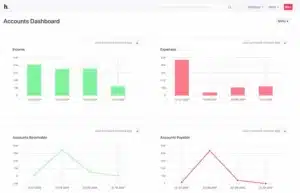 Hooman ERP is a startup ERP software from the Philippines, tailored to meet the specific needs of small and medium businesses (SMBs). With a focus on local businesses, Hooman ERP offers a range of services aimed at enhancing operational efficiency and productivity.
Hooman ERP is a startup ERP software from the Philippines, tailored to meet the specific needs of small and medium businesses (SMBs). With a focus on local businesses, Hooman ERP offers a range of services aimed at enhancing operational efficiency and productivity.
From accounting processes to inventory management, Hooman ERP provides SMEs with the tools they need to succeed in today’s competitive market. Its user-friendly interface and customizable features make it a practical choice for businesses looking to improve their workflow and grow sustainably.
Hooman key features:
- Advanced reporting
- Inventory management
- Advanced pricing
- Asset and stock management
- Project management
- Sales and purchasing
| Pros | Cons |
|
|
Hooman Design ERP: Hooman Design is suitable for distributors, manufacturers, educators, service providers, retailers, and freight forwarders that need customizable ERP systems.
Hooman pricing: Starts at ₱3000/Month.
18. Focus 9
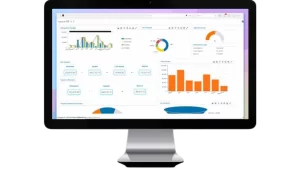 Focus 9 ERP application is a comprehensive business management solution for various industries. It offers finance, sales, purchasing, inventory, and more modules. Originating from India, Focus 9 ERP is designed to streamline operations, enhance productivity, and drive growth for businesses of all sizes.
Focus 9 ERP application is a comprehensive business management solution for various industries. It offers finance, sales, purchasing, inventory, and more modules. Originating from India, Focus 9 ERP is designed to streamline operations, enhance productivity, and drive growth for businesses of all sizes.
With its user-friendly interface and customizable features, Focus 9 ERP provides a tailored solution to meet each organization’s unique needs. Additionally, Focus 9 ERP offers features such as CRM and HR management, making it a versatile tool for modern businesses.
Focus 9 key features:
- General ledger
- Accounts payable/receivable
- Procurement and vendor management
- Order management and fulfillment
- Warehouse and inventory control
- Budgeting and forecasting
| Pros | Cons |
|
|
Focus 9 ERP: Focus 9 ERP Software suits businesses seeking a comprehensive ERP solution to manage various aspects of their operations, including finance, inventory, sales, and human resources.
Focus 9 pricing: Starts around $75 per month
19. Zoho ERP System Software
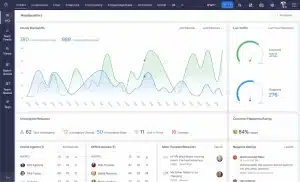
Zoho ERP is a cloud-based enterprise resource planning solution designed to cater to businesses of all sizes, offering a comprehensive suite of applications to streamline various business processes.
With a focus on flexibility and scalability, Zoho ERP provides tools that enhance operational efficiency and productivity across multiple departments.
Zoho key features:
- Accounting and finance
- Human resources
- Customer relationship management (CRM)
- Inventory and order managemet
- Project management
- Sales and purchasing
| Pros | Cons |
|
|
Zoho ERP System: Zoho caters to small, mid-sized, and enterprise-level businesses, particularly in manufacturing, distribution, retail, construction, and professional services.
Zoho pricing: Starts at $29 to $249 per month
20. QuickBooks Enterprise
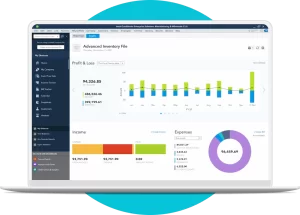 QuickBooks Enterprise is a comprehensive accounting software solution designed to meet the complex needs of growing businesses. It offers a robust suite of features that streamline financial management, inventory tracking, and operational processes, making it a versatile tool for various industries.
QuickBooks Enterprise is a comprehensive accounting software solution designed to meet the complex needs of growing businesses. It offers a robust suite of features that streamline financial management, inventory tracking, and operational processes, making it a versatile tool for various industries.
QuickBooks key features:
- Advanced Reporting
- Inventory Management
- Customer relationship management (CRM)
- Advanced Pricing
- Payroll Management
| Pros | Cons |
|
|
QuickBooks Enterprise System: it’s ideal for manufacturing, wholesale, construction, and distribution companies in middle-scale.
QuickBooks pricing: Contact the vendor for a quote.
21. Multiview ERP Software
Multiview ERP is a comprehensive financial management solution designed to enhance operational efficiency for medium to large-sized organizations across various industries. It offers a suite of integrated modules that streamline accounting processes and provide robust reporting capabilities.
Multiview key features:
- General ledger
- Accounts payable and receivable
- Financial reporting
- Budgeting and forecasting
- Inventory and order management
| Pros | Cons |
|
|
Multiview ERP System: it’s ideal for medium to large enterprises seeking to streamline their accounting and operational processes.
Multiview pricing: Contact the vendor for a quote.
Tips for Choosing the Best ERP Software for Business

Choosing the right Enterprise Resource Planning (ERP) software requires careful consideration. When you make the wrong choices, the consequences can be fatal for you and the company. Hence, read the following tips before choosing the best ERP software for you.
1. Assess the specific needs of your business
First, assessing your business’s specific needs and requirements is essential. This includes considering your company’s size, industry, and complexity of operations. Understanding these factors will help you narrow your options and choose an ERP solution tailored to your business needs.
2. Consider the scalability of the ERP
As your business grows and evolves, your ERP system should also be able to scale with you and adapt to changing requirements. Therefore, look for a solution that offers modular functionality, allowing you to add or remove features as needed.
Additionally, ensure that the ERP software can integrate seamlessly with your existing systems and third-party applications, enabling smooth data consolidation and communication across your organization.
3. Consider the key features
- Integrations: The ERP should connect data from departments like HR, IT, accounting, and CRM to streamline workflows.
- Unified Database: A single database should provide all users with real-time access.
- Automation: Automate routine tasks to improve efficiency.
- Reporting and Analytics: The system must offer insights into business drivers.
- Security: Ensure robust security with encryption, backups, and multifactor authentication.
4. Select the right ERP types
When considering ERP, it’s crucial to understand the different deployment options available, as each offers unique advantages for your business operations. By selecting the right AI in ERP implementation type, businesses can maximize the benefits of intelligent automation.
- On-Premise: Installed on your own company servers, this is great for businesses handling sensitive data and allows for more customization.
- Cloud-Based: Hosted on remote servers, it’s more affordable, easier to maintain, and quicker to set up, but may have fewer customization options.
- Hybrid: A mix of on-premise and cloud solutions, giving businesses the flexibility to balance costs and unique needs.
5. Assess the customer support team
When selecting ERP software in the Philippines, vendor support and training are crucial. ERP implementation can be complex, so choosing a provider that offers comprehensive training and continuous support ensures you maximize its benefits.
Additionally, consider the vendor’s reputation and track record. A provider with proven success and a strong local presence can offer the expertise and assistance needed for long-term success. Carefully evaluating these factors will help you choose an ERP system that fits your business needs and supports your growth.
Simplify Business Operations with ERP Automation
Due to many choices, choosing an ERP system from a list of the best ERP providers in the Philippines can be daunting. Each ERP vendor has strengths and weaknesses, so consider them carefully.
For a businessman looking for an ERP system, HashMicro is the best choice. This ERP program offers a complete module package for various industries at a reasonable price. Our system can also integrate with third-party apps, making it convenient for you to transfer data from other systems to ours.
Schedule a free demo of HashMicro ERP software to learn more about how our solution can help your business. However, if you need to consult for the right ERP system to develop your business effectively and efficiently, don’t hesitate to contact our Business Development and IT expert team by clicking here.
FAQ About ERP Software
-
Why business needs ERP?
ERP can reduce risk. It helps companies manage daily operations by preventing data duplication and inaccuracies and maximizing overall efficiency. Another benefit is improved efficiency, as ERP automates business processes across departments, eliminating costly and unnecessary repetitions.
-
What are the examples of ERP software?
Examples of ERP systems include Productive for Professional Services, Hashmicro, Sage Intact, Multiview, Acumatica, BizAutomation, and Infor ERP. These platforms help optimize operations, enhance efficiency, and aid in decision-making.
-
What is the difference between ERP vs CRM?
A customer relationship management (CRM) system helps you manage customer interactions and relationships. In contrast, an enterprise resource planning (ERP) system lets you oversee multiple facets of your business, including finances and customer journeys, in one centralized platform.
-
Where is ERP mostly used?
An ERP solution can benefit every business, including mid-market and small enterprises. Incorporating expense reporting solutions can also boost overall efficiency.




